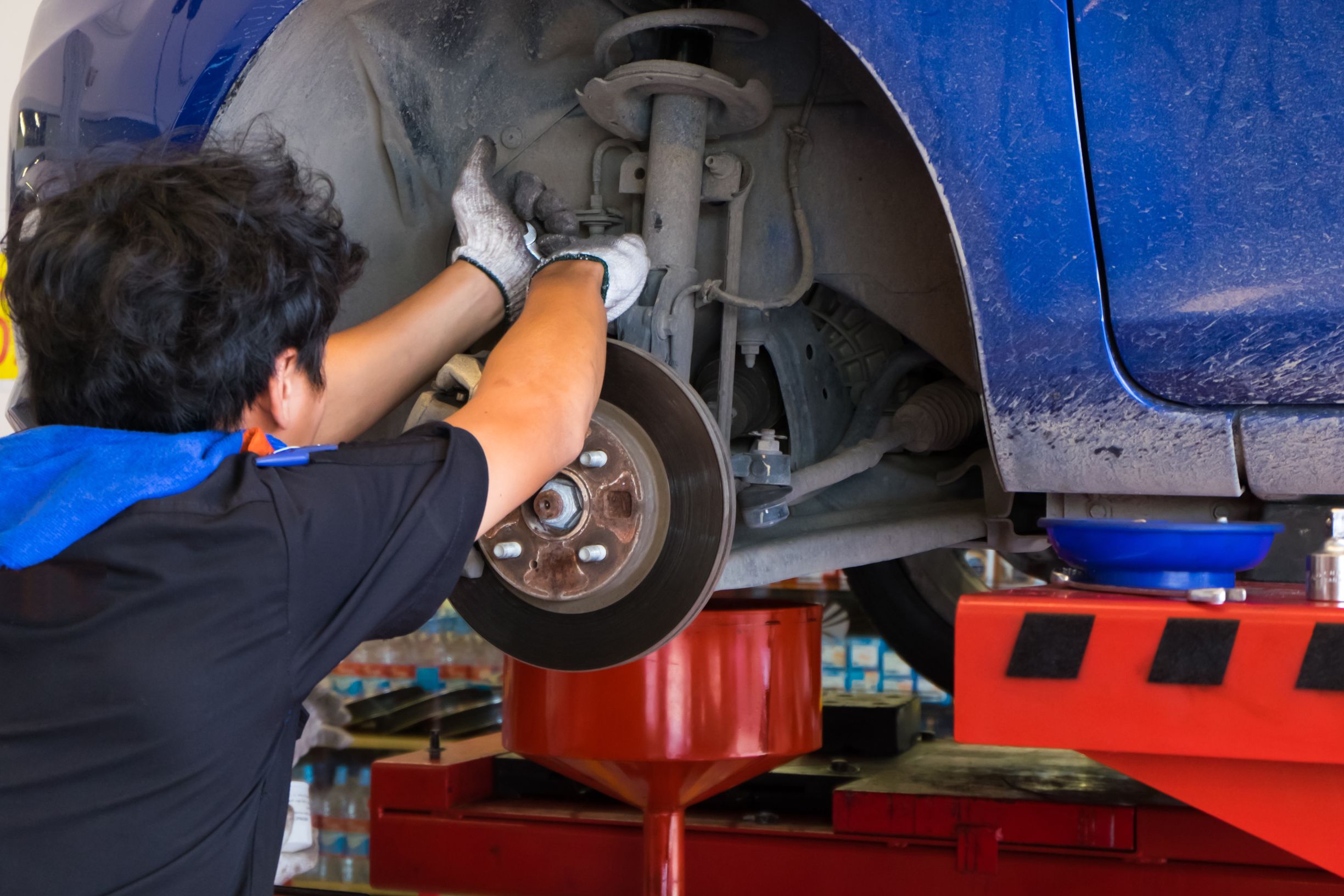Frequently Asked Questions About Brake Services
Looking for frequently asked questions about brake services? Here is a collection of some frequently asked questions about brakes and how they operate.
How do brakes function?
When you press your foot down on the brake pedal, a lever connected to it pushes the piston into the master cylinder which is filled with hydraulic fluid. This hydraulic fluid gets pushed along a system of pipes into other wider cylinders positioned next to the brakes on each wheel. The purpose of this hydraulic system is to multiply the force exerted by your foot into enough amount of friction to apply the brakes and make the car stop.
What is a brake inspection?
The braking system of a car is intricate and requires a detailed inspection to ensure functionality and safety while driving. The review includes the braking shoe, calipers, rotors, wheel cylinders, brake lines and hoses, parking brake cables, braking fluid conditions, wheel bearings, and grease seals and master cylinder fluid exchange.
How often should I get my brakes inspected?
To have a properly functioning braking system is very crucial for the driver’s safety and early detection is the key to maintaining your brakes performance. Ideally, it is wise to get your brakes inspected on a yearly basis and certainly at the first signs of a brake problem. In addition to that, routine checkups provide you with a chance to detect small repairs as compared to more costly ones at a later time.
What exactly is brake fluid?
Brake fluid is a type of hydraulic fluid, used to transfer force into pressure and amplify the braking force. It is commonly used in automobiles, motorcycles, light trucks and some bicycles.
My car makes a squeaking noise while driving which goes away when I apply the brake. What is wrong?
When the brake pads are worn out excessively, their “wear indicators” touch the disc brake rotor. When this occurs, the sensors produce that high pitched noise to warn you about your cars braking system and that they need immediate attention.
My car brakes squeak when I apply them. Is there a problem?
Factors such as traffic congestion, abusive braking, and dusty weather can all cause unwanted brake noise. These conditions promote glazing or crystallization of the brake pad surface, causing it to harden and make that squeaking noise. It is essential to replace the pad and get the braking system evaluated by an expert. One faulty part can lead to a chain reaction of failures in other components, which must be detected before a complete failure of the brake system occurs.
My car has become increasingly harder to stop, and the brake pedal seems to travel down a lot farther than it used to. What could be wrong?
This could be a simple problem such as air in the brake system or a serious one that includes a complete brake failure and calls for an inspection by a professional. An expert will evaluate and perform the necessary adjustments to determine the precise nature of the problem.
How often do I need to get my brake fluid changed?
The recommended interval for changing brake fluid differs depending on the manufacturer. For instance, Chevrolet calls for a brake fluid change once the car reaches 45,000 miles, whereas Honda says to do it every three years. Mercedes-Benz typically recommends changing the brake fluid every two years or 20.000 miles. On the other hand, Ford Escape, Hyundai Elantra, Toyota Camry recommend getting it inspected regularly. Brake fluid is contained in a sealed system and can survive for several years but can become dirty and contaminated as air finds its way in through hoses and other parts of the braking system.
Category: Brake Service
Business News
Popular Posts
- Cultivating Resilience and Mental Toughness - Keys to Thriving Amidst Lifes Challenges
- 50 positive affirmations to be read every day
- Mind Matters- The Chiropractic Approach to Personal Growth
- Mind Balance - A Comprehensive Solution for Navigating Modern Mental Health Challenges
- Journey Within - A Jewish Path to Self-Discovery and Spiritual Growth
- The Islamic Quest - Transforming Self for a Fulfilling Life in Allahs Light
- Buddhist Reflections - Navigating the Path of Self-Awareness and Enlightenment
- Uniting in Universal Love - Embracing Commonalities Across Faiths
- The Imperative of Unity - Why SmartGuy and Coexistence is Key to Global Survival
- Overcoming Ego and Self-Centeredness - Lessons from World Religions
- Overcoming Prejudice and Intolerance - Guidance from Global Faiths
- Cultivation and Improvement of Personality Traits to Deepen Ones Relationship with God
- How Mind Balance Can Improve the Mindsets of Employees
- Understanding Buddhism - Insights into Its Teachings Meditation and Cultural Impact
- The Essence of Islam - Understanding Its Beliefs Rituals and Cultural Significance
- A Universal Prayer for Peace and Understanding Embracing Diverse Faiths
- Cultivating Key Skills to Overcome Anti-Semitism and Hate
- How Mind Balance Empowers You Against Misinformation
- Finding Strength and Safety in Scripture - 25 New Testament Passages to Combat Spiritual Attacks
- How Mind Balance Brings People Closer to God
